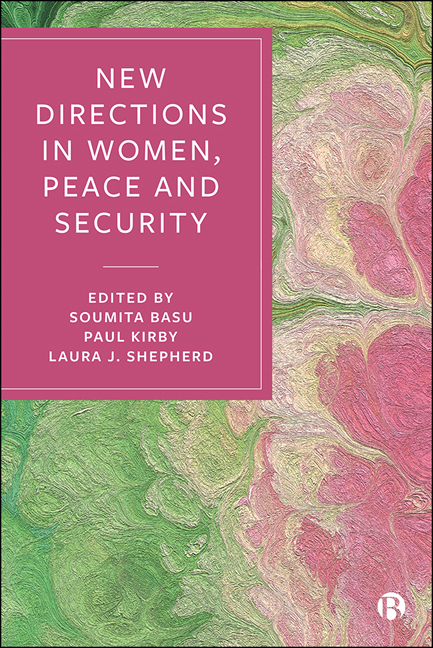10 - Towards a Postcolonial, Anti-Racist, Anti-Militarist Feminist Mode of Weapons Control
Published online by Cambridge University Press: 12 March 2021
Summary
The last decade has seen some notable feminist victories in one of the ‘hardest’ areas of international security – the international arms trade. The inclusion of gender-based violence (GBV) as a stand-alone article in the United Nations Arms Trade Treaty (UN ATT) that regulates international arms transfers is described by Cynthia Enloe as ‘a transnational feminist success’, ‘buried in its thirteen pages of formal diplomatic language’ (Enloe, 2014, p 23). States such as Canada and Sweden have articulated a feminist foreign policy that has implied tighter controls on weapons exports to repressive states. Nonetheless, these are not straightforward or obvious successes. In the ATT, GBV risks have to constitute serious violations of international humanitarian law (IHL) or international human rights law (IHRL) in order to require states to deny exports. While many GBV violations do meet such legal thresholds, arms transfers also play a less direct role in facilitating and sustaining GBV. And despite their commitments to a feminist foreign policy, Sweden and Canada have faced criticism for their ongoing commitments to arms sales to states such as Saudi Arabia.
Feminist critique tells us that violence exists on a ‘gendered continuum’ and that all violence (direct and structural) facilitated by the circulation of weapons is gendered (Cockburn, 2004, pp 24– 44). By extension, all weapons transfers have the potential for GBV: an indication of the scale of the challenge facing feminist accounts of weapons control, which are often implicitly anti-militarist in orientation. It is also indicative of the ongoing obstacles facing ‘the development of anti-militarist politics of peace’ in the Women, Peace and Security (WPS) agenda more widely (Shepherd, 2016, p 332), which has itself demonstrated a ‘tendency towards militarization’ (Basu and Shepherd, 2017, p 10). Anti-racist and anti-imperialist scholars and activists, meanwhile, assert the importance of defending the use of force in self-defence or as resistance (Dirik, 2017), probing the boundaries between anti-militarism, non-violence and pacifism.
Against this backdrop, this chapter discusses the overlapping imperatives of postcolonial, anti-racist and anti-militarist politics for feminist modes of weapons control as a contribution to the next generation of WPS scholarship.
- Type
- Chapter
- Information
- New Directions in Women, Peace and Security , pp. 153 - 168Publisher: Bristol University PressPrint publication year: 2020



